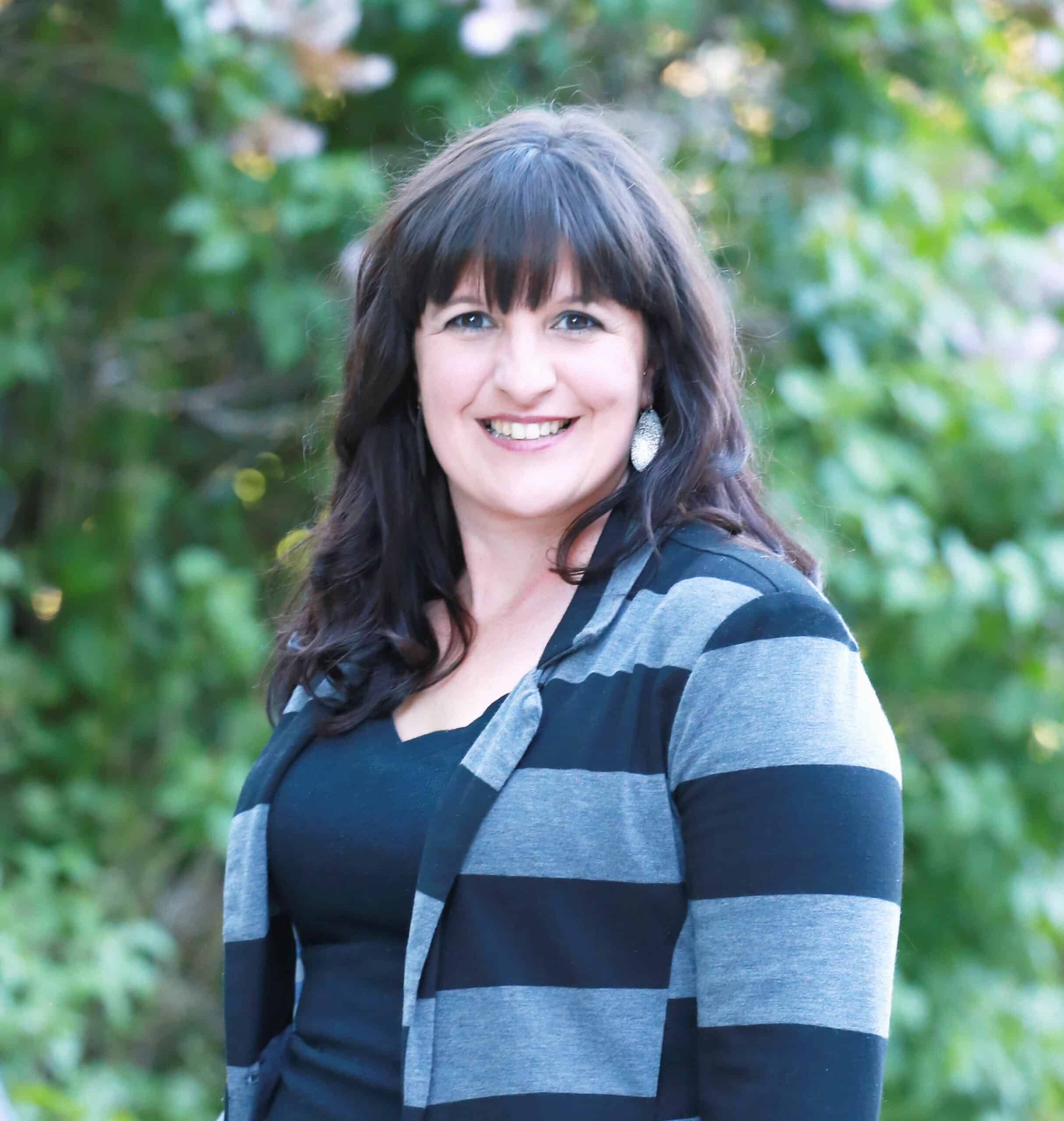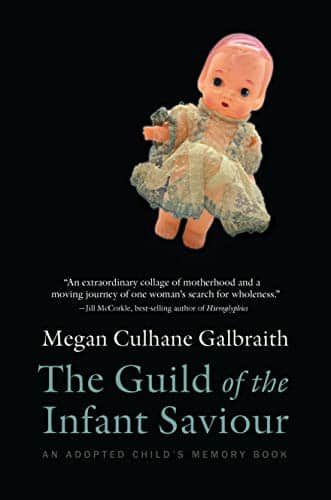by Ramona Mead
Like many eighth-grade girls, I spent a lot of time at my best friend’s house. A woman lived down the road who was a menace to their neighborhood, would start a feud with a neighbor over an errant garden hose. Her trailer home set at the end of a long gravel drive was the kind of place kids avoided on Halloween. She sped around on a bicycle, stiff and severe, never acknowledging her surroundings.
Whenever the woman passed by, my friend’s family burst into a mocking rendition of The Wicked Witch of the West’s signature tune, “Duh-duh, duh-duh, duh-duh-duh!” My friend and her family had no way to know it was my grandmother on that bicycle, and I never spoke up.
It was my mother’s mother, I called her Mom-Mom. Though I was around her as a kid, I can’t say I knew her. By the time I was in eighth grade, she and my mother had been estranged for more than five years. Ever since then, when I see that witch from The Wizard of Oz, I’m struck by the resemblance to the women in my family, including myself—it’s mostly the sharp profile (and the meanness.)
Mom-Mom’s husband, my Pop-Pop, died when I was six. At the time, I only knew he was “very sick.” I spent countless hours in squat pleather chairs of a mauve ICU waiting room, supervised by friendly nurses in pastel scrubs. My mother stayed at her father’s bedside until it became clear there was no hope he’d recover, and his life support machines were turned off.
I don’t recall the first time my mother told me the story how Pop-Pop died, it’s always been our family narrative and it goes like this: Mom-Mom and Pop-Pop were drunk and had an argument, she hit him in the head with a frying pan and he never woke up. It’s such a nonchalant description, I didn’t question this narrative until I was an adult in therapy.
“You mean she murdered him?” my therapist’s eyes widened after I casually recounted the version I’ve known my whole life. It always came across as it was his fault for not waking up. That’s a classic move in our family, blame the victim to avoid responsibility. After all, it’s not like that was the first time she’d hit him.
Our family lore says alcohol fueled altercations between my grandparents were common. Pop-Pop occasionally sported a black eye as a result. He never retaliated or talked about it. As an adult, I’ve asked my mother and aunt why Mom-Mom was never arrested after Pop-Pop’s death, and they give the same explanation, which is surprising. They say their dad “loved his wife so much,” they knew he wouldn’t want them to pursue legal action.
I was twenty-one when I had my first fight with a boyfriend. I didn’t want him to take a trip without me because I was jealous of another girl who’d be there. We were yelling at each other as I gathered up everything to do some laundry. I walked out mid conversation, to our building’s laundry room two doors down. I fumed while stuffing everything into a washer and cramming quarters into their slots.
I marched barefoot back down the sidewalk, my retorts finely tuned and ready to launch at him. Then suddenly, there he was getting in his car without offering me so much as a glance.
The blocky jug of laundry detergent soared across the parking lot before I even registered that it had left my hand. It landed on the wide hood of the Mustang with a solid thud as the car inched out of its parking space.
I rushed to our door without looking back and slammed it behind me, my lips trembling. What had I done?! My chest tightened and my tongue tingled. My anxiety had never escalated to this level in front of J before.
In the two years we’d lived together, he saw me kick over a kitchen chair or cry during episodes of panic when I was overwhelmed balancing my checkbook or studying for a test. Those were incidents where I’d struggled against myself, and he’d left me alone to work through them. This was the first time I’d lost control in J’s direction.
Through a slit in the blinds, I watched his car ease back into its space. J retrieved the jug of Tide with little effort and came through our front door as if he were returning with groceries.
I braced for the slap and barrage of insults I imagined I’d earned, as had always been the case growing up. Like the time in my junior year of high school when, in a fit of agitation over finishing a report on time, I’d slammed my palms against the keys of our electric typewriter until they stung then tossed it across our kitchen table. My mother pulled me out of my seat by my hair, slapped my face and called me an ungrateful bitch.
J set the jug on the coffee table without comment. Time seemed to slow down as I fought to get my breathing to a normal pace. He came to where I still stood by the window, pulled me close and held me for a moment. Then he gently separated us to arm’s length and spoke slowly and softly, “If you ever do anything like that again, we are done. I will never be with you anymore.”
When I realized he was comforting me, not punishing me, my confusion morphed into relief then embarrassment. I couldn’t lift my head to meet his gaze. I stared down, watching my hot tears drip onto my t-shirt.
J said he knew I needed help. What did I need? he asked, he’d help me get it. I didn’t know. Neither of us understood at the time that this behavior was how I had been taught to react to conflict. Despite the fact that we were later married, J never knew the details of my abusive childhood or the extent of my mother’s dysfunction because I didn’t fully understand it myself yet nor admitted it to anyone.
We decided I would start by scheduling a doctor’s appointment the next day. Later that night, our argument settled, I lay in the dark picturing that jug of Tide thunking onto the car’s hood, over and over and over again. Sour shame rose in my throat every time. And then in my mind, the jug was a rock spidering the windshield of my step-dad’s truck. My mother stood panting beside our front porch after hurling the softball sized rock, screaming insults as he drove away.
I was transported right back to that morning, holding my breath until I exhaled as the rock rolled down the windshield, off the hood of the truck and continued down the hill. While my step-dad had never raised a hand to my mother, I thought surely today was the day. I kept watch as his truck continued around the curved driveway, veered onto rutted dirt lane, then to the paved road, and out of sight.
This wasn’t the first time I’d witnessed my mother’s rage and wondered Why doesn’t someone stop her? It never occurred to me that someone might have tried.
My mother creates her own version of reality to get her through without ever taking accountability for her behaviors. When people call her out, she bails on the relationship. Whether it’s a spouse needing a break, or a hairdresser wanting to change her standing appointment time. When my mother tripped over a throw rug in the house, it went into the trash. If she choked while eating spaghetti, that brand of pasta was forever boycotted. So the question I’ve pondered for more than a decade is not why didn’t my mother want to change but why did I?
J was the first person to tell me, “You need help and I love you, so I want to help you get it.” All my life, my mother told me “there’s something wrong with you,” and “you’re sick in the head like your father.” She never once told me how I could make an effort to be different. She took me to medical doctors for my physical symptoms: chronic stomach pain in sixth grade, migraines at age fourteen, and I took treatments but there was never a search for a root cause. A doctor’s suggestion that these things could be stress related was dismissed by my mother. I was being dramatic, exaggerating, seeking attention.
Sometimes it feels like the strongest drive in my life, even stronger than my will to live, is my desire to not be like my mother. For many years, it felt like turning into her was inevitable.
The day I threw the laundry soap was the first turning point away from that course. It was the start of other people teaching me how to be a person in the world. My mother didn’t teach me or allow herself to be taught. I’ve determined the difference comes down to who we are at our cores. I have always had love and light at my center, my mother and grandmother had meanness at theirs. I didn’t always let my light shine because I was mocked and punished for being different from my mother, for being sensitive and silly. I was taught by example to behave in a way that went against my nature. That caused me a great amount of distress and anxiety. J was the first person to give me another option.
I have the possibility of wickedness in me. It was passed down from the surly old woman on her bicycle, to her daughter who then abused her daughter. Acknowledging that wickedness in me was the first step in not acting on it and taking a different path. I do not want to be a woman who terrorizes people. I don’t want to be a joke in my neighborhood or feared by my family. I am my mother’s daughter but I am not my mother. I come from wicked women and I choose not to be one.

Ramona Mead is a writer, reader, and book blogger, among many other things! Her personal essays have appeared in various online publications. She’s working on a memoir about her relationship with her mother in regard to trauma, family estrangement, and Huntington’s Disease. She lives outside Bozeman, Montana with her husband and a houseful of pets. You can find her on Instagram @RamonaMeadBlogger and her website www.RamonaMead.com.
~~~~~~~~~~~~~~~~~~~~~~~~~~~
Megan Galbraith is a writer we keep our eye on, in part because she does amazing work with found objects, and in part because she is fearless in her writing. Her debut memoir-in-essays, The Guild of the Infant Saviour: An Adopted Child’s Memory Book , is everything we hoped from this creative artist. Born in a charity hospital in Hell’s Kitchen four years before Governor Rockefeller legalized abortion in New York. Galbraith’s birth mother was sent away to The Guild of the Infant Saviour––a Catholic home for unwed mothers in Manhattan––to give birth in secret. On the eve of becoming a mother herself, Galbraith began a search for the truth about her past, which led to a realization of her two identities and three mothers.
This is a remarkable book. The writing is steller, the visual art is effective, and the story itself is important.
Pick up a copy at Bookshop.org or Amazon and let us know what you think!
~~~~~~~~~~~~~~~~~~~~~~~~~~~
Anti-racist resources, because silence is not an option
~~~~~~~~~~~~~~~~~~~~~~~~~~~


